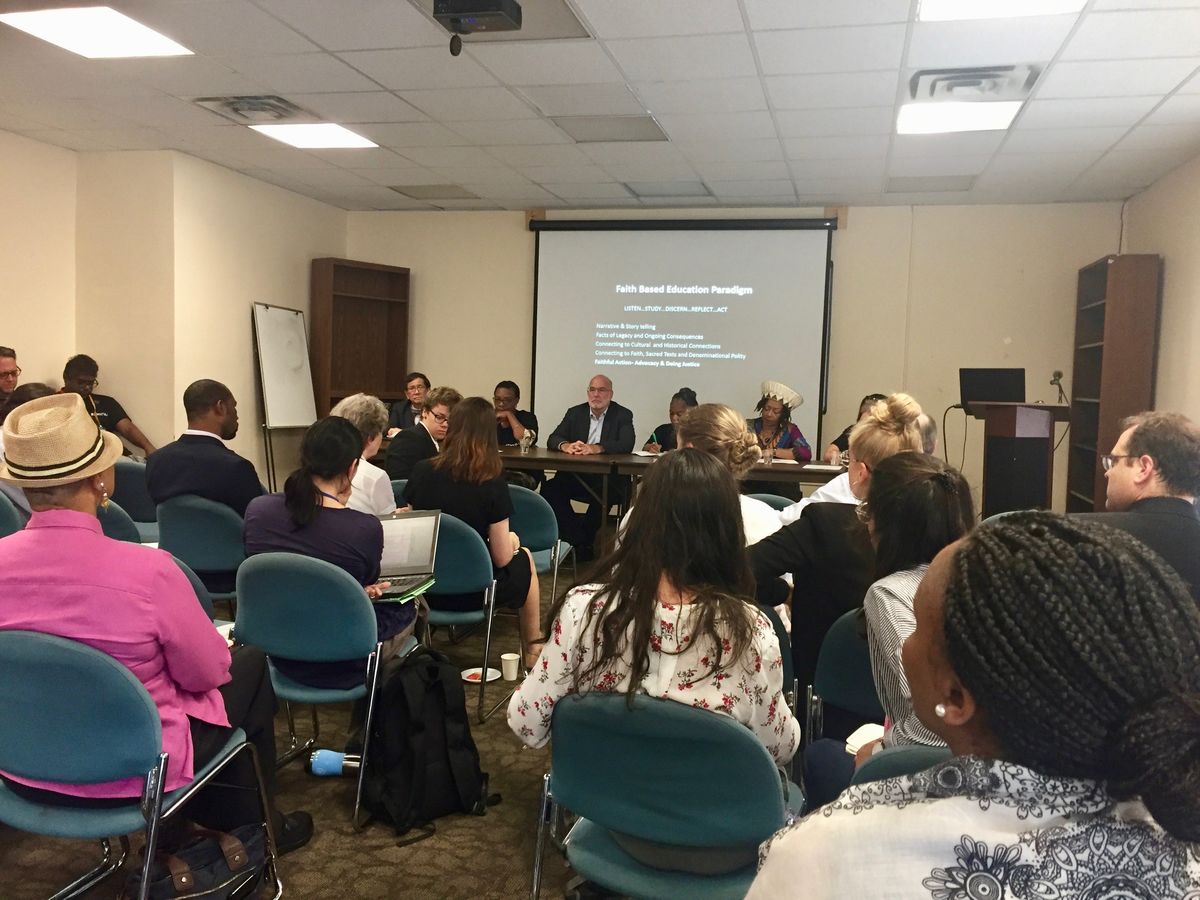What is the Zacchaeus Tax?
Church and Society recently supported the official launch of the Zacchaeus Tax Campaign, a global ecumenical initiative aimed at reducing inequality and addressing the climate emergency through corporate and wealth taxation.

In Jesus’ time, Zacchaeus was the chief tax collector in Jericho. The Book of Luke describes how Zacchaeus, like other tax collectors working for the Roman Empire, was seen as a sinful figure of ill-repute: self-enriching, corrupt and traitorous to the Jewish community.
When Jesus passed through Jericho on his way to Jerusalem, Zacchaeus ran ahead of the crowd and climbed a sycamore tree so he’d be able to see. To everyone’s surprise, Jesus went to the tree and told Zacchaeus that he would be a guest at his house that day (Luke 19: 1-10).
The story symbolizes Jesus’ open arms to all those who are lost or have strayed from the path of their moral compass. The story also exemplifies our shared responsibility to reduce economic and social inequalities, and repay past transgressions: after meeting with Jesus, Zacchaeus begins a routine of giving half his possessions to feed the poor. Efforts to address inequality are not charity, they’re our Christian obligation to justice.
As you know, a major part of Church and Society’s ministry at its United Nations office is to help implement Agenda 2030 and the 17 Sustainable Development Goals wherever they overlap with our Social Principles. Combating inequality is one such area. The work covers a lot of ground, since inequality stems from so many sources: everywhere from widespread, systemic issues like racial, ethnic or gender-based discrimination, to governmentally-supported exploitation of land and resources, to predatory lending schemes and the protection of tax havens.
With all this in mind, Church and Society cosponsored a high-level program last month centered around Sustainable Development Goals No. 10, reduced inequality, and No. 13, climate action. Entitled “Taxation and Reparations: Tools for Promoting Equity, Climate Justice, and an Economy of Life,” the expert discussion offered various faith perspectives on the ways historical injustices and contemporary systems of taxation continue to fuel poverty, conflict, social disintegration and the climate emergency.
After dissecting some intersectional factors contributing to the problem, panelists proposed exciting concrete solutions, including the official launch of the Zacchaeus Tax Campaign. A joint project conceived by event co-sponsors at the Council for World Mission, the World Council of Churches, the World Communion of Reformed Churches and the Lutheran World Federation, the Campaign is part of the organizers’ New International Financial and Economic Architecture initiative.
The Campaign provides a list of specific faith-rooted and gender-just objectives that we believe will indeed promote equity, climate justice and an economy of life. For starters, it calls for “a global comprehensive wealth tax – building on the Piketty proposal for a 1% tax of wealth between 1 to 5 million euros and a 2% tax on wealth above 5 million euros – together with inheritance and other wealth taxes at the national level [to] tackle runaway inequality while raising billions for health, education and other critical social services.”
It goes on to call for progressive pollution and carbon taxes, an end to tax evasion by multinational corporations and debt cancellation for nations impoverished by the transatlantic slave trade or impacted by the climate crisis.
We know you have a lot on your plates right now, advocacy-wise, but we encourage all United Methodists to read up on the Campaign and spread the word within your communities. We won’t be able to achieve these ambitious imperatives without working together to demand action.
The Zacchaeus Campaign’s authors call on churches to:
• “Study the issues around just taxation and reparation for slavery and ecological debt through the lens of the covenantal relationships that God calls us into with each other and the earth.” Sharing the story of Zacchaeus is a good place to start.
• Organize their individual finances “in line with Zacchaeus principles for just taxation, sharing of resources, and reparation for historical injustice.” Explore where divesting or reallocating could help us better live within our congregational ideals – even small changes can make a big difference.
• “Join the Zacchaeus campaign and lobby with national governments for tax and reparative justice.” As Christians and taxpayers, we’re dual stakeholders. Let’s demonstrate our priorities to local, regional and national legislators. #ZaccTAX